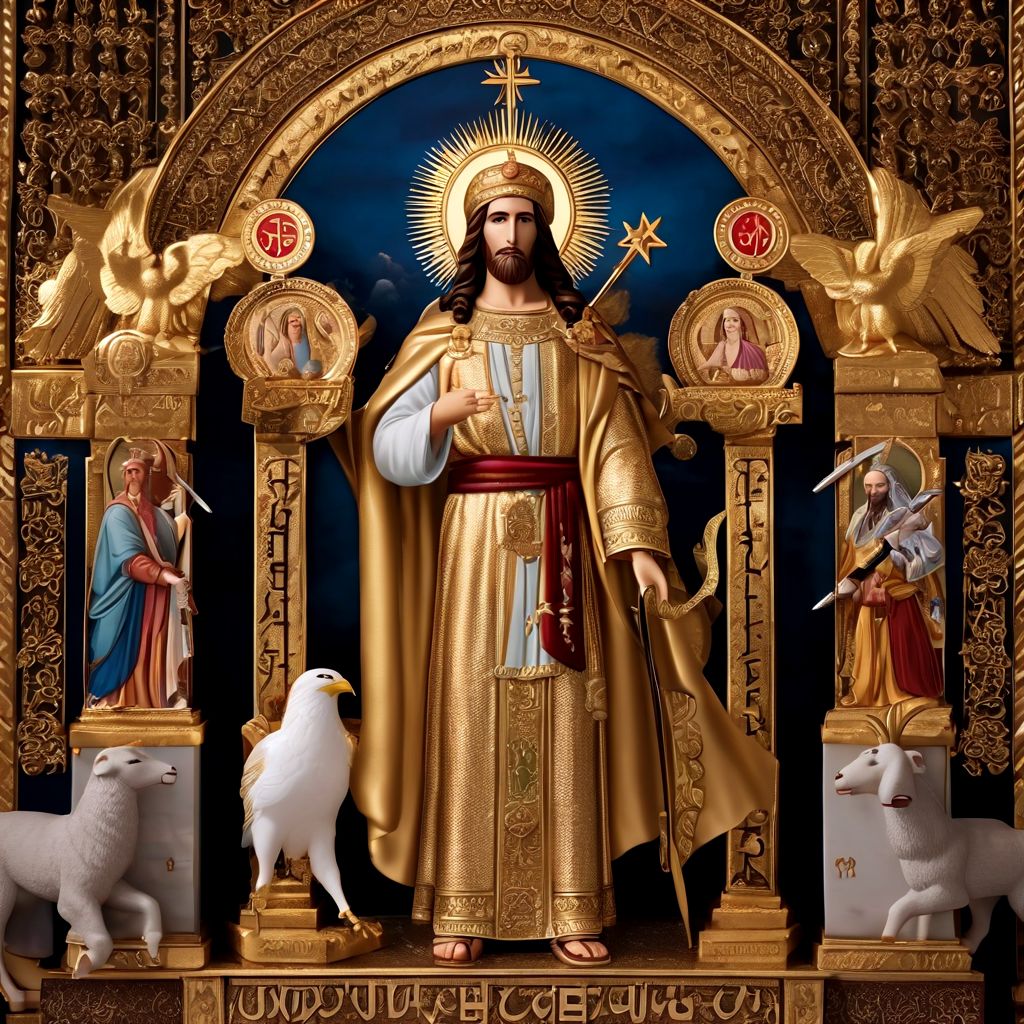A Watchtower Vision: Messianic Echoes in Habakkuk 2
Habakkuk 2, with its shifting perspectives and poetic imagery, paints a dramatic tapestry of God’s response to the prophet’s anguished cries. Stepping from the shadows of doubt in chapter 1, Habakkuk ascends a symbolic watchtower, eager for divine revelation. The verses that follow weave a complex narrative, hinting at messianic themes that resonate with the life and teachings of Jesus, though without explicit mention.
Divine Retribution and Righteous Response: God’s answer unfolds in a series of pronouncements against Babylon, the oppressive power poised to bring judgment upon Judah. Verses 5-19 thunder with pronouncements of woe, vividly depicting the arrogance and violence that will ultimately lead to Babylon’s downfall. This theme of judgment finds parallels in Jesus’ warnings about sin and its consequences. He too spoke of impending judgment for those who reject God’s righteousness and embrace iniquity (Matthew 7:21-23). Both Habakkuk and Jesus, speaking in different contexts, raise a similar call for repentance and turning away from evil.
Woe to the Arrogant: A key theme in Habakkuk 2 is the condemnation of pride and arrogance. Verses 5-11 depict Babylon’s insatiable greed and boastful self-assuredness, fueled by conquests and exploitation. This critique resonates with Jesus’ teachings against pride and self-exaltation. He repeatedly emphasized humility and service as cornerstones of his message, teaching that the greatest are those who humble themselves and serve others (Matthew 23:12). The contrasting portraits of the arrogant oppressor and the humble servant present a clear dichotomy, a message echoed across both scriptures.
Righteousness Resurgent: Despite the pronouncements of judgment, Habakkuk 2 is not solely a vision of destruction. Woven within the tapestry of wrath are promises of hope and the eventual triumph of righteousness. Verses 4 and 19 stand out as beacons of optimism: “The righteous will live by his faith” and “For the earth will be filled with the knowledge of the glory of the Lord, as the waters cover the sea.” These pronouncements foreshadow a future where faith prevails over injustice, and God’s glory permeates the earth. In Jesus, this promise finds its ultimate fulfillment. He embodies the righteous one who lives by faith, and his teachings and sacrificial death pave the way for the restoration of God’s kingdom and the filling of the earth with His glory (John 17:22-24).
A Song of Triumph:
#WatchtowerVision, #MessianicEchoes, #Habakkuk2, #DivineRetribution, #RighteousResponse, #WoeToTheArrogant, #HumilityTeachings, #RighteousnessResurgent, #TriumphOfFaith, #SongOfTriumph, #BeyondHistory, #UniversalSignificance, #LivingByFaith, #JesusConnection, #TransformativeMessage, #SaviorVoice, #DivineTriumph, #KnowledgeOfGod, #PropheticBridge
The final verses of Habakkuk 2 burst into a triumphant hymn, praising God’s power and majesty. The prophet, no longer burdened by doubt, expresses unwavering trust and confident anticipation of God’s victory. This shift in tone aligns with the transformation found in Jesus’ followers. Though facing trials and tribulations, their faith in the ultimate victory of Christ allows them to sing songs of praise even in the midst of suffering (Philippians 4:11-13).
Beyond History: While the historical context of Habakkuk 2 focuses on Babylon’s judgment, the themes it raises transcend specific events. The condemnation of injustice, the call for righteousness, and the promise of God’s ultimate triumph hold universal significance. Through the lens of Jesus, these themes receive a profound depth and clarity. His life and teachings provide a living embodiment of the principles articulated in Habakkuk 2, offering a practical roadmap for pursuing justice, embracing humility, and living by faith in a world often shrouded in darkness.
The Messianic Voice: Habakkuk 2, though not explicitly messianic, carries echoes of the voice that would later speak with definitive authority and grace. In its critique of injustice, its call for righteousness, and its promise of ultimate victory, it foreshadows the coming of one who would embody these principles perfectly. While the prophet’s watchtower offered a glimpse of hope within a specific historical context, it ultimately points towards a future where the righteous would truly live by faith, and the knowledge of God’s glory would fill the earth. In this sense, Habakkuk 2 becomes a bridge, connecting the cries of an ancient prophet to the transformative message of the Savior whose voice still resonates across the ages.


